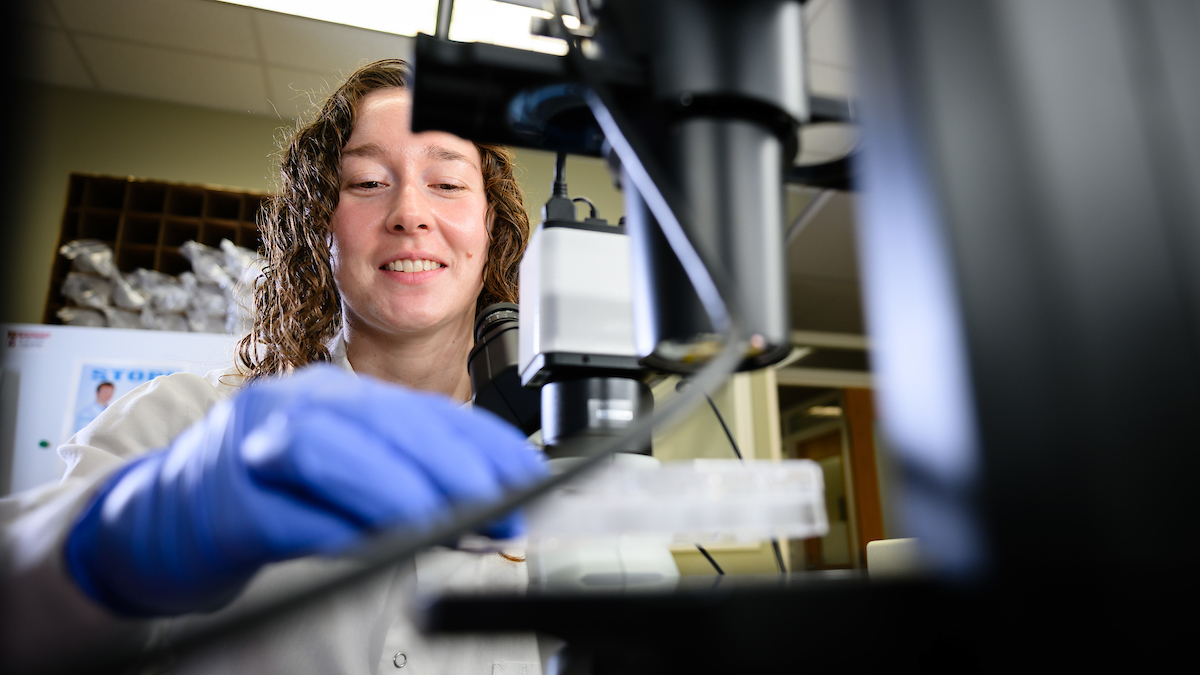Participants Needed for Promising Feline Lymphoma Clinical Trial
Clinical researchers at the College of Veterinary Medicine are stepping up efforts to recruit participants for an ongoing clinical study involving a new treatment for feline lymphoma.
Lymphoma is the most common malignancy reported in cats, accounting for one-third of all feline tumors. Cats have the highest incidence for lymphoma of any species and each year between 123,000 and 153,000 cats diagnosed with the disease.
Part of the North Carolina Animal Cancer Program (NCACP) and managed by the Veterinary Teaching Hospital’s Oncology Service, the feline lymphoma study involves treating cats affected by lymphoma with a combination of induction chemotherapy followed by abdominal cavity radiation therapy.
According to Dr. Laurel Williams, the study’s principal investigator and an associate professor of oncology, feline lymphoma often develops in organs within the abdomen, including the liver, spleen, and lymph nodes. Traditional treatment calls for systemic chemotherapy.
“Unfortunately, cats treated with chemotherapy alone have a relatively poor and limited duration response with only 30 to 65 percent of cats responding to therapy for durations lasting six to 10 months,” says Dr. Williams. “This is why we are excited about studying the combination of chemotherapy with other forms of therapy—in this case, radiation therapy—in hopes this may ultimately improve the outcome in cats with lymphoma.”
Initial results are promising. Simon, an early study participant, has regained weight and vitality and is in complete remissionmore than 22 months since completingtreatment. Mickey, another trial participant, has exceeded nine months in remission since completing treatment.
The research team is optimistic that the treatment approach will continue to be well tolerated and successful in larger numbers of cats affected with lymphoma. In order to recruit additional cases and broaden the geographic distribution of participants, veterinary oncologists in other states are being encouraged to have their appropriate clients participate in the study.
Pet owners whose cats are accepted in the NCACP study will receive $1,300 toward the cost of radiation therapy. The cost of blood tests performed during radiation therapy is also covered. Owners will be responsible for costs associated with diagnostics done during the pet’s initial evaluation and for all post-treatment monitoring.
The study is funded by the Winn Feline Foundation, a non-profit organization founded by the Cat Fanciers’ Association (CFA) in 1968 to create a source of funding for medical studies to improve the health and welfare of cats. The foundation was named to honor CFA’s longtime attorney and advisor, Robert. H. Winn.
Related to the research, Dr. Williams established the “Pet Cancer Care Fund” with the North Carolina Veterinary Medical Foundation to help interested donors support studies in companion animal cancer.
The feline lymphoma study is one of several NCACP investigations into tumor biology and new methods of cancer treatment. Other current studies involve canine lymphoma, canine melanoma, canine soft tissue sarcomas, and feline vaccine-associated sarcomas.
The NCACP is multi-institutional with collaborative studies involving researchers at Duke University Medical Center and the University of North Carolina at Chapel Hill. Findings from NCACP studies have helped treat cancers in animals and humans.
For more information on the Pet Cancer Care Fund or on the study itself, call (919) 513-6690 or write clinical research technician Julie Osborne at julie_osborne@ncsu.edu.
Posted Oct. 6, 2008


